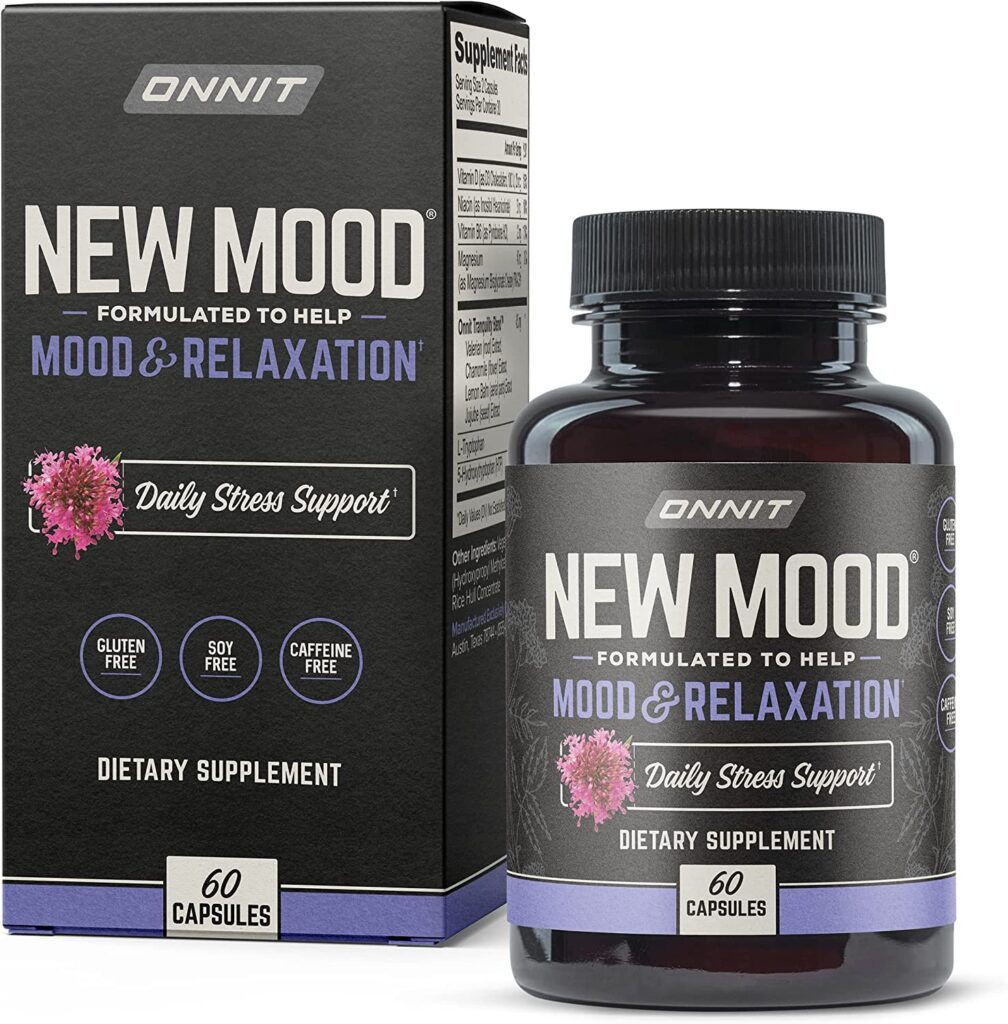Overcoming Rejection Sensitive Dysphoria Holistically
Rejection Sensitive Dysphoria (RSD) can be an overwhelming emotional challenge, but with the right holistic practices, you can navigate and overcome its impact. By embracing a comprehensive approach that incorporates supplements, whole foods, exercise, journaling and meditation, individuals with RSD can develop emotional resilience and regain a sense of self-worth. In this article, we will explore strategies that can help you embrace rejection, manage sensitivity and foster personal growth.
Understanding Rejection Sensitive Dysphoria
Invest in your own wisdom. Begin first by gaining a deeper understanding of Rejection Sensitive Dysphoria. Recognize that RSD is an emotional response characterized by intense sensitivity to perceived rejection or criticism. Educate yourself about the symptoms, triggers and the impact it has on your emotional well-being. This knowledge will empower you to implement effective holistic strategies.
Rejection sensitive dysphoria refers to an intense emotional response to perceived or actual rejection, criticism or disapproval. It can result in overwhelming feelings of sadness, anxiety and self-doubt. Recognizing the signs and symptoms of RSD, such as heightened sensitivity to social situations, fear of rejection and a tendency to avoid certain activities or interactions, is crucial for managing its impact on mental well-being.
Seeking support from mental health professionals, such as therapists or counselors, who are familiar with RSD can provide valuable guidance and coping strategies. Developing self-awareness, practicing self-compassion and engaging in self-care activities are important steps in managing RSD. Building a support network of understanding friends, family members or support groups can also provide validation and a safe space for discussing and navigating the challenges associated with RSD. Remember, RSD is a real and valid experience, and by understanding it and seeking appropriate support, women can better manage its effects and cultivate a healthier emotional well-being.

Embracing Rejection: Overcoming Rejection Sensitive Dysphoria with Holistic Practices
Supplements for Emotional Regulation
Explore natural supplements that have shown promise in supporting emotional well-being and managing sensitivity. Speak with a healthcare professional to determine the supplements that may benefit you. Consider options such as magnesium, omega-3 fatty acids, L-theanine and adaptogenic herbs like ashwagandha or rhodiola. Remember to consult with a professional to determine proper dosages and any potential interactions.
Supplements can potentially play a supportive role in emotional regulation for women with rejection sensitive dysphoria, but it’s important to approach them with caution and consult with a healthcare practitioner. While individual needs may vary, certain supplements have shown promise in promoting emotional well-being. Omega-3 fatty acids, particularly EPA and DHA, have been associated with mood support and may help alleviate symptoms of depression and anxiety. Some individuals with RSD may benefit from supplements like magnesium and vitamin D, as deficiencies in these nutrients have been linked to mood disturbances.
Adaptogenic herbs, such as ashwagandha and rhodiola rosea, have been traditionally used to support stress resilience and emotional balance. However, it’s crucial to remember that supplements should not replace prescribed medications or therapy, and their efficacy can vary from person to person. Working with a healthcare practitioner who specializes in holistic approaches can help determine appropriate dosages, evaluate potential interactions and ensure an integrated approach to emotional well-being for women with RSD.
Article Continues Below
Embracing Rejection: Overcoming Rejection Sensitive Dysphoria with Holistic Practices
A Few Favorites To Get You Started
Read Our Affiliate Disclaimer
Embracing Rejection: Overcoming Rejection Sensitive Dysphoria with Holistic Practices
Article Continues Below

Nourishing Whole Foods
Adopt a whole foods-based diet that supports emotional balance and overall well-being. Focus on consuming nutrient-dense foods such as fruits, vegetables, whole grains, lean proteins and healthy fats. Avoid processed foods, refined sugars and artificial additives, as they can exacerbate mood swings and negatively impact emotional stability.
Opting for whole foods such as fruits, vegetables, whole grains, lean proteins and healthy fats provides essential vitamins, minerals, and antioxidants that promote optimal brain function and mood stability. Including foods rich in omega-3 fatty acids, such as fatty fish, walnuts and chia seeds, may also provide mood-boosting benefits.
Incorporating complex carbohydrates like whole grains and legumes can help regulate blood sugar levels and promote steady energy throughout the day. Prioritizing balanced meals with adequate protein can support neurotransmitter production, which is important for emotional regulation.
Additionally, staying hydrated and avoiding artificial additives can help maintain stable energy levels and support overall well-being. Consulting with a registered dietitian or nutritionist can provide personalized guidance and help create a nourishing meal plan tailored to individual needs, promoting emotional balance and overall health for women with RSD.

Engaging in Regular Exercise
Keep that body in motion. Regular physical activity is a powerful tool for managing sensitivity and promoting emotional well-being. Find exercises that you enjoy, whether it’s yoga, walking, dancing or strength training. Engaging in regular exercise releases endorphins, reduces stress and enhances self-confidence, allowing you to better navigate the challenges of rejection sensitivity.
Physical activity can help regulate emotions, reduce stress and improve overall well-being. Regular exercise releases endorphins, which are natural mood-boosting chemicals in the brain, promoting feelings of happiness and relaxation. It can also help alleviate symptoms of anxiety and depression that often accompany RSD. Finding enjoyable forms of exercise, such as walking, dancing, cycling, or yoga, is important to maintain motivation and consistency.
Incorporating exercise into a daily routine and setting realistic goals can provide structure and a sense of accomplishment. Engaging in group activities or exercising with a supportive friend or partner can add social interaction and emotional support. Starting with small, manageable steps and gradually increasing intensity and duration is key. It’s important to listen to the body, rest when needed, and avoid pushing oneself too hard.
Consulting with a healthcare practitioner or seeking guidance from a fitness professional can help develop an exercise plan tailored to individual needs and considerations. By making regular exercise a part of their lifestyle, women with RSD can improve their emotional well-being, boost self-confidence and better manage the challenges associated with rejection sensitivity.

Embracing Rejection: Overcoming Rejection Sensitive Dysphoria with Holistic Practices
Journaling for Self-Reflection
Learn to learn about you. Incorporate journaling as a tool for self-reflection and emotional processing. Set aside dedicated time to write about your thoughts, emotions and experiences related to rejection. Use journaling to gain insights, identify patterns and reframe negative beliefs. It can also be a safe space to express yourself and release pent-up emotions.
Journaling can be a powerful tool for self-reflection and emotional healing for women with rejection sensitive dysphoria. It provides a safe and private space to express thoughts, feelings, and experiences, allowing for a deeper understanding of oneself. Through journaling, women with RSD can explore their emotions, triggers, and patterns of thought that contribute to their sensitivity to rejection. Writing down these thoughts and experiences can help gain clarity, identify underlying patterns and uncover potential solutions and/or coping strategies.
Journaling also provides an opportunity to challenge negative self-perceptions and replace them with more positive and self-compassionate thoughts. It can be a source of validation, as women can revisit their journal entries to remind themselves of their growth, resilience and progress.
Additionally, journaling can serve as a creative outlet for self-expression and a tool for problem-solving. Whether it’s through free writing, gratitude journalin, or specific prompts, journaling offers a therapeutic practice that can support emotional well-being and empower women with RSD to navigate their experiences with greater self-awareness and resilience.
Article Continues Below
Embracing Rejection: Overcoming Rejection Sensitive Dysphoria with Holistic Practices
A Few Favorite Journals To Get You Started
Read Our Affiliate Disclaimer
Embracing Rejection: Overcoming Rejection Sensitive Dysphoria with Holistic Practices
Article Continues Below

The Power of Meditation
Embrace meditation as a means to cultivate mindfulness and emotional resilience. Regular meditation practice can help you observe and accept your emotions without judgment, fostering self-compassion and reducing reactivity to perceived rejection. Explore mindfulness meditation, loving-kindness meditation or guided meditations tailored to self-esteem and emotional healing.
Regular meditation practice can help cultivate a sense of inner calm, emotional resilience and self-acceptance. By training the mind to focus on the present moment and observe thoughts and emotions without judgment, meditation can enhance self-awareness and provide a sense of control over one’s reactions to rejection triggers. Through meditation, women with RSD can develop a deeper understanding of their own thought patterns, gaining clarity on the root causes of their sensitivity and cultivating self-compassion.
Mindfulness meditation, in particular, can help women stay grounded in the present moment, allowing them to respond to rejection triggers with greater equanimity and clarity. Meditation can also promote relaxation, reduce anxiety, and improve overall emotional well-being. Starting with short meditation sessions and gradually increasing the duration can make it more accessible and manageable.
Guided meditations, mindfulness apps or classes can provide additional support for those new to the practice. By incorporating meditation into their daily routine, women with RSD can tap into the transformative power of mindfulness, finding greater peace, acceptance and emotional stability in their lives.

Seeking Support
Don’t hesitate to seek support from mental health professionals who specialize in Rejection Sensitive Dysphoria or related conditions. Therapy can provide valuable insights, coping strategies and support in navigating emotional challenges. Additionally, connecting with support groups or online communities of individuals experiencing RSD can provide a sense of understanding and solidarity.
It’s important for women with RSD to reach out to understanding and empathetic individuals who can provide validation, guidance and a safe space to share their feelings. This support can come from trusted friends, family members or support groups where they can connect with others who have similar experiences. Professional support from therapists, counselors or psychologists who specialize in RSD can offer valuable insight and strategies to manage the challenges associated with rejection sensitivity.
Holistic practitioners, such as naturopaths or life coaches, can provide complementary approaches to support emotional well-being. Seeking support also involves fostering open communication and setting boundaries with others, ensuring that their needs are understood and respected. By building a network of support, women with RSD can find solace, validation, and encouragement, enabling them to navigate their experiences with greater resilience and well-being.

Embracing Rejection: Overcoming Rejection Sensitive Dysphoria with Holistic Practices
By embracing holistic practices, individuals with Rejection Sensitive Dysphoria can overcome the challenges associated with sensitivity to rejection and foster personal growth. Incorporating supplements, nourishing whole foods, engaging in regular exercise, journaling and meditation can support emotional regulation and resilience.
Remember, healing takes time, so be patient and kind to yourself throughout the journey. With a comprehensive approach and the support of professionals and communities, you can embrace rejection, develop emotional resilience and reclaim your sense of self-worth.
and don't forget to sign up for our weekly newsletter. it's free!
52 Weeks, 52 Topics! Get Our Latest ‘Stay Well’ Newsletter Every Monday And Start Your Week Off AllNaturWell. A New Tip, A New Study Revealed, A New Product Reviewed. Get It Right To Your Inbox Weekly. No Need To Wait. It’s Free!











